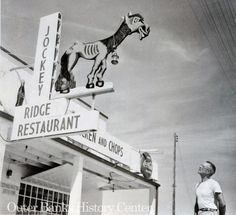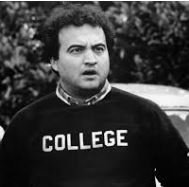70 BC: Birth of Roman poet Virgil (d.19 BC).
1066: The last successful invasion of the British Isles takes place at the Battle of Hastings, where an invading French army under the command of the illegitimate son of the Duke of Normandy demolishes the army of England’s King Harold II. The victor changes his moniker from William the Bastard to William the Conqueror, and assumes the throne of England as William I. The victory was a credit to the discipline and morale of William’s army, aided by severe fatigue in Harold’s army, which had just recently force-marched themselves from the coastal north, where they repelled a Norse invasion on the 25th of September.
1307: King Philip the Fair of France, with the begrudging support of the Pope, sends out swarms of secret agents to arrest over 400 Knights Templar on charges of treason, blasphemy, and a dozen or so other spurious charges. After the last Grand Master of the order, Jacques de Molay was burned at the stake: this was the moment when Philip’s crusade against the Crusaders came to fruition, with torture, forced confessions and brutal executions following in the wake.
1322: Robert the Bruce defeats the Earl of Richmond at the Battle of Old Byland– yet another nail in the coffin of British King Edward II’s subjugation of Scotland.
1448: The Second Battle of Kosovo ends with the Christian armies of Hungary depleted to the point where they were no longer able to mount a credible defense, let alone any offensive operations against the victorious Ottoman armies of Anatolia. The defeat gave the Ottoman’s junior commander (and later Sultan) Mehmed II the military breathing space for his eventual conquest of the Christian capital of Constantinople n 1453.
1492: Five weeks after heading west from the Canary Islands, Christopher Columbus makes landfall near Samana Cay in the southern region of the Bahamas Islands. He spends the next three months exploring primarily along the north coast of Cuba and the island of Hispaniola, trading with the natives, taking careful soundings, while all the while noting the locations of the harbors and availability of provisions for follow-on exploration.
1529: End of the first Siege of Vienna, where the heretofore unstoppable armies of Suleiman I (The Magnificent) were stopped after an exhausting march through the Balkans by the combination of Vienna’s walls, an early snowfall, and the determination and skill of the German Landsknets– a powerful mercenary force well trained in the use of halberds, pikes and long swords.
1739: Birth of Grigory Potemkin (d.1791), Russian nobleman, military leader, and lifelong “favorite” of Empress Catherine the Great of Russia. The idiom that now bears his name came from his time as Governor-General of the newly annexed Crimea region. On the eve of renewed war with the Ottoman Empire, the Empress made an “unannounced” visit up the Dnieper River with her Court, multiple ambassadors, and a disguised Austrian Emperor Joseph II to show them the strength of her new territories. Potemkin painted up actual riverfront villages to make them look better, and also created a kind of mobile village that could be set up quickly and populated with members of his army and staff dressed up as peasants as the royal flotilla went by.
1775: The Continental Congress, recognizing the need to do something to protect American trade on the high seas, authorizes and purchases two vessels to act as the Continental Navy, progenitor of the United States Navy, which recognizes this date as its formal beginning. The tiny American fleet eventually grew to 65 vessels, mostly converted merchant ships, all of which provided the command and operational experiences for the cadre of captains who distinguished themselves in later naval conflicts with both France and Great Britain. 11 ships finished the war basically intact, with the final one, frigate Alliance, being sold off to a private buyer for $26,000 in 1785.
1777: Ten days after his cataclysmic defeat at the second Battle of Saratoga, British General John Burgoyne surrenders his army to American General Horatio Gates. The American victory was crucial proof to the French that the Americans actually had a chance to prevail against the hitherto dominating military and naval superiority of Great Britain.
1781: Yorktown, Virginia, with supplies running low, and the combined American & French armies under General George Washington closing their siege lines inexorably closer to the faltering British positions, British General Lord Cornwallis sends out a party under flag of truce to ask for terms of surrender. This stunning event was the direct result of the French naval victory at the Battle of the Virginia Capes, which diverted Cornwallis’ replenishment fleet from delivering its crucial stores.
1792: In the District of Columbia, the cornerstone is laid for the Executive Mansion, known today as the White House.
1793: French Queen Marie Antoinette is tried and convicted by a revolutionary court of “justice.”
1793: Death of Marie Antoinette (b.1755), widow of the late King Louis XVI. After what passed for a trial a couple days before, the now-former queen maintained her composure during the hour long ride in a open oxcart between her jail cell and the guillotine erected in the Place de la Revolution (now the Place du Concorde). Her final words were, “Pardon me monsieur, I did not mean to do it, ” having accidentally stepped on the foot of the executioner on her way across the platform.
1814: The London Beer Flood. At a prominent brewery on Tottenham Court Road, a huge vat of beer ruptures, splitting open several other vats that suddenly disgorged over 323,000 Imperial Gallons of beer into the street. The frothy surge kills 8 souls, one of whom was crushed in the wreckage of the brewery’s collapse, and five others who drowned in the basement of a home where they were conducting a wake.
1834: The Palaces of Westminster, home of the Kings of England since Medieval times, and of the Houses of Parliament since 1295, burn to the ground, with only a couple portions of the original structure remaining usable. The government opened an architectural competition began to re-build the structure, and construction began 6 years later, in 1840. Thirty years after that, Parliament moved back in. The final furnishings were not completed until early in the 20th century.
1844: Birth of Henry J. Heinz (d.1916). The logo on his ketchup bottles says “57 Varieties.”
1859: Abolitionist John Brown leads a team of 18 men on a raid of the federal arsenal at Harper’s Ferry, Virginia, planning on capturing the 10,000 rifles and ammunition in storage there with the expectation of leading a slave revolt in the southern states. They captured the arsenal fine, there being only one watchman on duty, but they were trying to figure out what to do next when a regularly scheduled train arrived. One of them shot Hayward Shepherd, the Baggage Master who was trying to hail them about something else. The irony of a free black man being the first victim of the purported slave revolt was likely lost on Brown. The train promptly continued on its way and telegraphed to the B&O RR headquarters about the issue in Harper’s Ferry.
1863: The Confederate submarine CSS H.L. Hunley sinks during a test dive, drowning its inventor and the entire rest of the crew. After being raised and refurbished one more time, the 7-man submersible eventually makes the world’s first successful submarine attack on another warship.
1884: American inventor George Eastman receives a patent for a paper-strip photographic film.
1910: At Kinloch Field just west of Saint Louis, Theodore Roosevelt climbs aboard a Wright Model B aeroplane with pilot Archibald Hoxey and becomes the first (ex-)President to go flying.
1912: Former President Theodore Roosevelt, campaigning in Milwaukee as the head of the new Bull Moose party, is shot in the chest by a local saloon keeper. The bullet penetrated his steel eyeglass case and a 50 page copy of his manuscript before lodging in the muscle of his chest wall. Since he was not coughing up blood, TR knew that the wound was not mortal, so he went ahead and gave the speech with blood slowly oozing under his shirt and coat. He opened his comments with, “Friends, I shall ask you to be as quiet as possible. I don’t know whether you fully understand that I have just been shot; but it takes more than that to kill a Bull Moose…the bullet is in me now, so that I cannot make a very long speech, but I will try my best.” Afterwards, the doctors decided it would be safer to leave the bullet in place rather than remove it, and TR carried it with him until he died.
1914: Birth of Mohammad Zahir Shah (d.2007), the last King of Afghanistan.
1916: Margaret Sanger opens in Brooklyn the nation’s first contraception clinic, for which she was promptly arrested and put on trial.
1923: Cartoonist Walt Disney incorporates the Walt Disney Company with his brother Roy Disney.
1925: Birth of the Iron Lady, Prime Minister Margaret Thatcher of Great Britain (d.2013).
1926: British author A.A. Milne introduces his most memorable character to the public with the publication of Winnie-the-Pooh.
1928: The rigid airship Graf Zepplin completes its first Trans-Atlantic crossing.
1931: The notorious Chicago gangland crime boss Al Capone is convicted of tax evasion and sent to prison for an 11 year sentence.
1933: Physicist Albert Einstein flees the burgeoning Nazi unrest in his native Germany, arriving in San Diego, and eventually settling in Princeton, New Jersey.
1934: The Soviet Republic of China– the nascent communist workers’ paradise- collapses as the Kuomintang army under Chaing Kai Shek triumphantly enters Ruijin, forcing the communists under Mao Tse Tung to begin their storied “Long March” to the mountain fastness of the interior, where they will re-organize and plot their eventual return to power.
1938: First flight of the Curtis P-40 Warhawk, the mainstay fighter of the Army Air Corps in the early years of WWII, with 13,738 produced before production ceased in 1944.
1938: Birth of motorcycle daredevil Evil Kenievil (d.2007).
1940: The Nazi government of Germany, whose army spent the last six weeks obliterating Poland’s army and forcing the capitulation of the Polish government, establishes a closed ghetto in the heart of Warsaw as a place to concentrate the extensive Jewish population of the country pending further plans.
1943: After running Il Duce out of office and putting his corpse on public display on a meat hook, the new government of suddenly non-Fascist Italy turns on their former Pact of Steel partner and joins the Allies against Nazi Germany. The occupying German army is not impressed, and fought a bitter and basically successful retrograde action up the Italian peninsula for the next two years, with the Germans still holding much of northern Italy when the war ended. The political reversal did not do any favors to the reputation of Italian fighting forces, a sting that lingered for decades.
1947: USAAF ace and former POW Captain Chuck Yeager, flying as a test pilot at Edwards Air Force Base out in the Mojave Desert, makes the world’s first supersonic flight in the Bell X-1 rocket plane. The event was nicely depicted in the 1985 movie The Right Stuff, derived from Tom Wolf’s book of the same name, which rightly identified the Edwards test pilot cadre as the quintessence of America’s push into ever more expanded and dangerous flight regimes. After this flight, Yeager went continued to set altitude and speed records in an ongoing competition with fellow test pilot Scott Crossfield.
1962: A USAF U-2 reconnaissance plane returns from a flight over Cuba with photographic proof that the Soviet Union was installing ballistic missile launching facilities on the newly communist island.
1962: Pope John XXIII convenes the Second Vatican Council, the first “summit conference” of the Roman Catholic Church since the First Vatican Council of 1878, and only the 21st Council since the beginning of Roman Christianity. Called with the specific intent of better aligning Catholic practice with the modern, post-World War II world, it remains a flashpoint of principled dissent within the traditional wing of the larger church body. Two primary arguments against the Council assert that:
1) Since there was no formal doctrinal statement supporting the dilution of longstanding traditions of the Church, those changes were therefore not binding for faithful Catholics, and;
2) Building even further on this thought, a small but intense school of thought believes that since the leadership of the Church broke with tradition with the work of the Council, the subsequent Popes have no canonical standing and cannot legitimately claim the papacy, thus legally rendering the office vacant.
1966: Inspired by ongoing Leftist dissent against the Vietnam War, black radicals Huey Newton and Bobby Seals form the Black Panther Party.
1973: The Organization of Petroleum Exporting Countries (OPEC) imposes an embargo on oil sales on countries suspected of aiding Israel in its decisive victory in the Yom Kippur War. The shock of the oil cutoff drove the price of a barrel of crude from $3.00 to over $12.00 in a matter of weeks, triggering a major stock market correction, and multiple policy decisions designed to lessen our dependency on external oil.
1984: Long time anti-apartheid activist, the Reverend Desmond Tutu is awarded the Nobel Peace Prize.
1997: The Thrust SSC, driven by British fighter pilot Anthony Green, sets a land speed record at the Bonneville Salt Flats, marking the first time a wheeled vehicle passes the supersonic threshold.




Ms Iohnstone Thank you for writing this.
Please tell me you are not considering Angelo Manuel.
FRANK WENDELL FOR MAYOR!!!
Loved this. Thank you.
As it is being used by all of the political parties here and globally to keep the populace divided to…